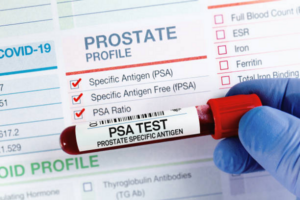Promoting Prostate Health: A Comprehensive Guide for September Prostate Awareness Month
September is Prostate Awareness Month, a crucial time to highlight the importance of prostate health and encourage men to take proactive steps in maintaining it. At Community Quick Care, we are dedicated to providing comprehensive healthcare services that support our patients’ overall well-being, including prostate health. In this blog post, we will explore the significance of prostate health, the role of regular screenings, and how our clinic can assist you in maintaining a healthy lifestyle.
Understanding Prostate Health
The prostate is a small gland located below the bladder in men, playing a vital role in the reproductive system. Prostate cancer is one of the most common cancers among men, making awareness and early detection essential. Symptoms of prostate issues can include difficulty urinating, frequent urination, and discomfort in the pelvic area. However, many men may not experience symptoms until the condition is advanced, underscoring the importance of regular screenings.
The Importance of Regular Screenings
Early detection of prostate cancer significantly increases the chances of successful treatment. At Community Quick Care, we offer comprehensive physical exams, including prostate screenings, as part of our annual adult physicals and “Welcome to Medicare” visits. Our experienced healthcare providers use the latest diagnostic tools to ensure accurate and timely detection of any potential issues.
Advancements in Prostate Cancer Research
Recent advancements in prostate cancer research have brought hope to many. Innovations in diagnostic techniques, such as advanced imaging and genetic testing, are improving early detection rates. Additionally, new treatments, including targeted therapies and immunotherapies, are showing promise in effectively managing prostate cancer with fewer side effects compared to traditional treatments. These advancements are paving the way for more personalized and effective treatment plans, enhancing patient outcomes and quality of life.
Lifestyle Choices for Prostate Health
Maintaining a healthy lifestyle can reduce the risk of prostate cancer and other prostate-related issues. Here are some tips to promote prostate health:
- Healthy Diet: Incorporate a diet rich in fruits, vegetables, and whole grains. Foods high in antioxidants, such as tomatoes and berries, can help protect prostate cells.
- Regular Exercise: Engage in regular physical activity to maintain a healthy weight and improve overall health.
- Avoid Smoking and Limit Alcohol: Smoking and excessive alcohol consumption can increase the risk of prostate cancer.
Prostate Awareness Month is an excellent opportunity to prioritize prostate health and encourage men to take proactive steps in maintaining it. At Community Quick Care, we are committed to providing comprehensive healthcare services that support your overall well-being. Schedule your annual physical today and take the first step towards a healthier future.
For more information or to book an appointment, visit our website or contact us directly. Let’s work together to promote prostate health and ensure a healthier community.
Gear Up for Success: The Essential Sports Physical for Student Athletes
As the school year kicks off, student athletes are eager to hit the field, court, or track. Amidst the excitement, it’s crucial to prioritize their health and safety with a sports physical. Here’s why these exams are a game-changer and what you can expect during the process.
The Importance of Sports Physicals
1. Safety First: Before the season starts, ensuring that student athletes are fit to play is paramount. Sports physicals help identify any underlying health issues that could pose risks during intense physical activity. This proactive step is essential for preventing serious health incidents on the field.
2. Risk Assessment: Healthcare providers conduct thorough screenings to detect conditions that might lead to injuries or health problems during sports. By assessing the athlete’s overall health, they can catch potential issues early and recommend appropriate precautions.
3. Team Effort: Sports physicals foster collaboration between parents, coaches, and healthcare providers. This teamwork ensures that everyone is informed about the athlete’s health status, creating a supportive environment that prioritizes safety and well-being.
What Happens During a Sports Physical?
1. Comprehensive Medical History: The exam begins with a detailed review of the athlete’s medical history, including allergies, medications, past surgeries, and family health history. This information helps healthcare providers understand any potential risks and tailor their advice accordingly.
2. Physical Examination: Next, the provider conducts a physical exam, checking reflexes, eyesight, hearing, and musculoskeletal health. They assess the athlete’s height, weight, blood pressure, pulse, vision, heart, lungs, abdomen, ears, nose, and throat. Evaluating strength, flexibility, joints, and posture is also part of the process.
3. Mental Health Check-In: Mental health is a crucial aspect of overall well-being. During the sports physical, providers may discuss mental health resources available at school and encourage open conversations about stress, anxiety, and emotional health. Schools often offer counseling services to support students.
Extra Tips for a Winning Season

Stock Up on First Aid Supplies: Whether at home or in a dorm room, having a well-stocked first aid kit is essential. Include basics like bandages, antiseptics, and pain relievers. Being prepared can make a big difference in managing minor injuries and preventing complications.
Stay Connected: Parents should maintain open communication with coaches and healthcare providers. Regular updates on the athlete’s health and sports activities can help address any concerns promptly. Encouraging a healthy lifestyle, including proper nutrition and adequate rest, is also vital for the athlete’s success.
By prioritizing sports physicals, parents and student athletes can ensure a safe and successful sports season. At Community Quick Care, we’re committed to providing quality healthcare services with same-day availability, extended hours, and Saturday appointments. Choose us for your family’s health needs!
The Role of Semaglutide in Weight Loss Programs
Weight loss can be a challenging journey, but with the right support and tools, it becomes more manageable. One such tool that has been gaining attention in the medical community is Semaglutide. At Community Quick Care, we are committed to helping our patients achieve their weight loss goals through comprehensive and compassionate care, including the use of Semaglutide.
What is Semaglutide?
Semaglutide is a medication originally developed to treat type 2 diabetes. However, it has also been found to be highly effective for weight loss. It works by mimicking a hormone called GLP-1 (glucagon-like peptide-1) that targets areas of the brain involved in regulating appetite and food intake. By enhancing the feeling of fullness and reducing hunger, Semaglutide helps individuals consume fewer calories and lose weight.
How Does Semaglutide Work?
Semaglutide is administered via a once-weekly injection. It helps to:
- Reduce Appetite: By influencing the brain’s appetite control centers, Semaglutide helps reduce the urge to eat.
- Increase Satiety: It slows down gastric emptying, which means food stays in the stomach longer, making you feel full for a longer period.
- Improve Blood Sugar Control: For those with type 2 diabetes, it helps manage blood sugar levels, which can also contribute to weight loss.
Benefits of Semaglutide for Weight Loss
Clinical trials have shown that Semaglutide can lead to significant weight loss. Participants in these trials experienced an average weight loss of around 15% of their body weight. This is a substantial amount, especially for those who have struggled with obesity for years.
Some key benefits include:
- Effective Weight Loss: Helps achieve and maintain a healthier weight.
- Improved Metabolic Health: Reduces the risk of obesity-related conditions such as type 2 diabetes, hypertension, and cardiovascular diseases.
- Enhanced Quality of Life: Weight loss can lead to improved mobility, energy levels, and overall well-being.
How Community Quick Care Can Help
At Community Quick Care, we understand that weight loss is not a one-size-fits-all journey. Our team of highly skilled Physician Assistants and Nurse Practitioners is dedicated to providing personalized care tailored to each patient’s unique needs. Here’s how we can support you:
- Comprehensive Evaluation: We start with a thorough assessment of your health, medical history, and weight loss goals.
- Personalized Treatment Plan: Based on your evaluation, we create a customized weight loss plan that may include Semaglutide, dietary guidance, and exercise recommendations.
- Ongoing Support: Our team provides continuous support and monitoring to ensure you stay on track and make necessary adjustments to your plan.
- Education and Resources: We offer educational resources to help you understand the role of Semaglutide and other weight loss strategies.
- Holistic Approach: We address all aspects of your health, including mental and emotional well-being, to support sustainable weight loss.
Book an Appointment
If you’re ready to take the next step in your weight loss journey, Community Quick Care is here to help. Click on the button below to schedule an appointment with one of our providers. Together, we can create a plan that works for you and helps you achieve your health goals.
At Community Quick Care, your health and well-being are our top priorities. Let us help you discover the benefits of Semaglutide and support you on your path to a healthier, happier life.
Back-to-School Health Checklist: What Parents Need to Know
Tour the School: Parents who attend open house events with their child can reduce first-day jitters. Your child gets to see their classroom, the seating arrangement, and the school supply list. If your child is new to the school, schedule a tour to explore the cafeteria, library, and gym.
Meet the Teacher(s): Children feel less anxious after meeting their teachers during open house. Familiarity with their teachers beforehand helps ease the transition. It’s like knowing someone before the first day, and it provides a glimpse of what’s ahead.
Update Immunizations and Vaccinations: Ensure your child’s immunization records are up-to-date. Most schools require proof of vaccinations. Discuss any specific requirements with your healthcare provider. At Community Quick Care, we offer comprehensive services, including physicals, to meet these enrollment requirements. Our Tenncare plans allow us to convert a Sports Physical ($29.00) into a regular physical, ensuring no out-of-pocket cost for the patient.
Sports Physicals: Ensuring Safe Participation: A sports physical, also known as a pre-participation physical evaluation (PPE), assesses an athlete’s fitness for sports participation. It screens for conditions that may affect safety during physical activities. Here’s what you need to know:
Why Are Sports Physicals Important?
- Risk Assessment: Healthcare providers screen for conditions that could lead to injuries or health problems during sports.
- Safety First: Sports physicals help ensure safe participation by identifying any underlying health issues.
- Collaboration: Parents, coaches, and healthcare providers work together to prevent injuries and promote well-being.
What to Expect During a Sports Physical Exam:
Your healthcare provider will:
- Take a full medical history, including allergies, medications, and past surgeries.
- Perform a physical examination, assessing reflexes, eyesight, hearing, and musculoskeletal health.
Mental Health Awareness: Discuss mental health resources available at school. Encourage open conversations about stress, anxiety, and emotional well-being. Schools often have counseling services for students.
Prepare a Well-Stocked First Aid Kit: Whether at home or in a dorm room, having a well-stocked first aid kit is crucial. Include essentials like bandages, antiseptics, and pain relievers.
Remember, back-to-school preparations involve both practical steps and emotional support. By following this checklist, parents can ensure a smooth transition for their children as they head back to the classroom. At Community Quick Care, we’re committed to providing quality healthcare services with same-day availability, extended hours, and Saturday appointments. Choose us for your family’s health needs!
Preventing Foodborne Illnesses at Summer Gatherings
As the sun shines and temperatures rise, outdoor gatherings become a staple of summer. Whether you’re hosting a backyard barbecue, attending a picnic, or enjoying a beachside cookout, it’s essential to prioritize food safety. After all, nothing can put a damper on a sunny day faster than a bout of food poisoning.
Why Summer Increases the Risk
Foodborne illnesses tend to spike during the summer months. Why? Bacteria thrive in warm weather, multiplying faster when the mercury rises. Additionally, outdoor cooking often takes us away from the comforts of refrigerators, thermometers, and sinks. But fear not! By following some simple guidelines, you can keep your summer events both delicious and safe.
Cleanliness Is Key: Wash Hands and Surfaces Often: Before handling food, wash your hands thoroughly with soap and water. Also, clean cutting boards, utensils, and countertops to prevent cross-contamination.
Separate to Avoid Cross-Contamination: Don’t Mix Raw and Cooked Foods: Keep raw meats, poultry, and seafood separate from ready-to-eat foods. Use separate cutting boards and utensils to avoid cross-contamination.
Cook Food to Proper Temperatures: Use a Food Thermometer: Ensure that meats are cooked to safe internal temperatures. For example:
- Chicken and turkey: 165°F (74°C)
- Ground beef: 160°F (71°C)
- Steaks and roasts: 145°F (63°C)
Chill Promptly: Keep Cold Foods Cold: Bacteria grow rapidly between 40°F (4°C) and 140°F (60°C). When serving outdoors, use extra cold sources like ice packs or frozen water bottles in your cooler. Store perishable items below 40°F to prevent spoilage.
Mind the Marination: Marinating meats adds flavor, but it’s essential to do it safely. Always marinate in the refrigerator, not on the countertop. If you plan to use some of the marinade as a sauce, set aside a separate portion before adding raw meat. Discard any leftover marinade that has come into contact with raw proteins.
Allergen Awareness: Label Allergens: If you’re hosting a potluck-style event, ask guests to label dishes containing common allergens like nuts, dairy, or gluten. This helps everyone make informed choices and prevents accidental exposure.
Community Quick Care: Your Safety Net
Remember, accidents happen. If someone falls ill during your summer event, know that Community Quick Care is here for you. With our convenient LaVergne location, our primary care walk-in clinic offers urgent care hours. Staffed by compassionate Physician Assistants and Nurse Practitioners, we prioritize high-quality comprehensive care. Most insurance plans are accepted, so you can focus on enjoying your summer without worry.
Stay safe, stay cool, and savor those summer flavors!










